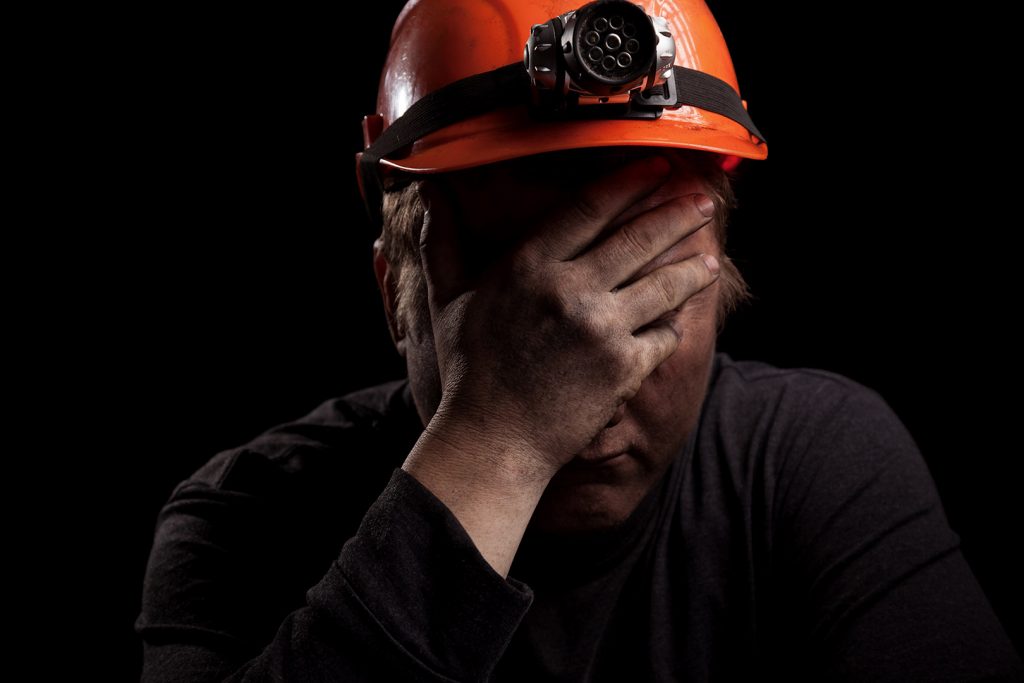
There’s a coal crisis in Appalachia, specifically in West Virginia, but the problem is not a lack of coal.
There’s plenty of coal to be had in the Mountain State. In fact, 28 counties in West Virginia produce coal on a regular basis, and the West Virginia Coal Industry provides about 30,000 direct jobs in West Virginia, including miners, mine contractors, coal preparation plant employees, and mine supply companies.
The problem is not in the production of coal; the problem lies in what is called “mountaintop removal coal mining,” a process that devastates the mountainside and pollutes the land and nearby streams, turning areas that should be lush with forests and wildlife into barren wastelands.
What is Mountaintop Removal Coal Mining?
Mountaintop removal of coal is a lengthy process and a destructive one that results in toxic chemicals and substances leeching into the groundwater and surrounding area making the water unsafe to drink, and unsafe for doing laundry, bathing, and cooking. In the mountaintop removal process, the entire mountainside is cleared, trees are ripped from the ground, and brush is cleared with huge tractors.
The debris left behind is set on fire as deep holes are dug for explosives. An explosive is poured into the holes and mountaintops are blown off—literally. Huge machines called “dragline,” which are the size of an entire city block and can scoop up to 100 tons in single load, come through and push rock and dirt into nearby streams and valleys, forever burying waterways and contaminating everything in their wake.
Coal companies use explosives to blast as much as 800 to 1,000 feet off the tops of mountains in order to reach thin coal seams buried deep below.
Isolated Coal Towns Facing Water Crisis
Many families in West Virginia counties count several generations of coal miners, and they’re torn about what’s taking place on their beloved mountains. The very companies that have employed great grandfathers, grandfathers, fathers, and sons are the same companies that are contributing to the toxic water supply on which those families depend.
Most residents of coal-mining towns in Appalachia get their water from private wells that are essentially unregulated. So it’s up to the men and women who own the wells to determine whether or not their drinking water has been contaminated. The complex nature of water pollution means many people are not aware what’s coming out of their taps.
Some residents of West Virginia who answered questions for a BBC report on this subject described their situation: “The taps in the home have been worn down…the washing machine frequently stops working, and… the bathroom and kitchen have been stained a deep, bloody orange by the pollutants – iron, sulphur, even arsenic – that have seeped into…the water supply.”
One woman who spoke to a reporter for the BBC poured a glass of water from her kitchen tap and let it rest on a table. After just a few moments, the water had a strange smell and a sticky texture and within minutes, it began to turn a dark orange color. At the bottom of the glass was a layer of black sediment. The same woman described a small, isolated, coal community where hardly a day goes by without hearing about another neighbor’s family being diagnosed with some type of cancer.
How bad is the mountaintop removal coal crisis? One study has estimated that this process of mining coal, which has been practiced since the 1970’s, has flattened an area the size of the entire state of Delaware. An Environmental Protection Agency (EPA) report estimates that over 2,000 miles of streams have been buried by the excess rock and soil that’s dumped after the explosions. That’s a distance greater than the length of the Mississippi River.
When coal companies were contacted, they reported to the BBC that their mines “operated under state regulations and with a valid permit.” One mine is facing a lawsuit from residents in Wyoming County, West Virginia who are seeking compensation for costs of dealing with their water issues. The lawsuit has divided the town because people don’t want to fight the very company keeping their loved ones employed year after year.



Exploited people eventually get tired of being the FREAK in the circus.
The coal companies have been killing us for years and people just keep talking about it!!
Oh, you’re just realizing this?!
Coal companies have never been good for West Virginia. Yes, they provide employment but they also provide injuries, chronic diseases, unnecessary and premature deaths, destruction of our mountains and communities. Let’s not forget some of the earlier things they brought mining script, company stores and the coal company ‘police.’ As citizens, we continue to allow it because we have drank the Kool-Aid that the coal companies sell, which is endorsed by most of our state and local officials. It is heartbreaking. I look forward to the day when we take back our independence, our health, our land and our state from those who don’t mind to destroy WV or it’s people.